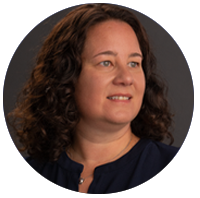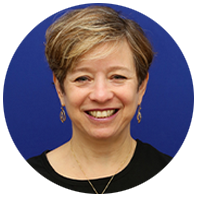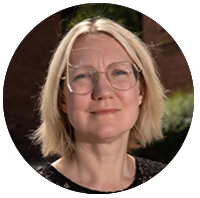Listen to industry-leading speakers from the Illumina workshop at ESHG 2023:
Whole-genome sequencing (WGS) breaking frontiers on patient care
Genomics leaders from different countries share their success stories of the application of WGS in clinical care and demonstrate how genomic testing has an impact on patient's lives as well as in health institutions.
The presentations show the power of WGS as one-tier test over current Standard Of Care (SOC) with a transformative measure for patient´s treatment.
WGS in routine care: past, present and future perspectives

Dr. Lisenka Vissers
Radboud University, Netherlands
Dr. Lisenka Vissers is a Professor in Translational Genomics at Radboud University Medical Center. She’s a pioneer in the translation of genetic research into clinical diagnostics. Lisenka started her scientific career with a PhD in the optimization of high throughput technologies for the detection of genetic causes underlying human disease, with a particular focus on intellectual disability disorders, and this led to the identification of several novel syndromes published in her findings in high impact journals. In the past 5 years, Lisenka demonstrated a talent for bridging the gap from research to clinic, resulting in strong reproductive and successful translational research in novel state of the art genome wide technologies, including exome and genome sequencing.
The Israeli National Clinical Baby Bambi pilot – Country wide rtWGS in critically ill neonates

Dr. Hagit Baris-Feldman
Tel Aviv Sourasky Medical Center
Professor Hagit Baris Feldman is a medical doctor and an expert in pediatrics and medical genetics. Director of the Genetics Institute and the Genomic Center at Tel Aviv Sourasky Medical Center since 2019. Also, the Chair of the Israeli Medical Genetics Association between 2018 and 2021.
Her translational research group works in collaboration with research groups in Israel and around the world, the study of the role of novel human genes in pathways with the aim of finding new treatments in repurposing known drugs. Her research has led to over 70 original peer-reviewed papers.
WGS as first tier test in a routine clinical setting in Sweden

Karolinska University Hospital
Professor Anna Lindstrand is a consultant in clinical genetics and the Director of the Clinical Genetics Diagnostic Laboratory at Karolinska University Hospital and group leader for rare disease research group in the Karolinska Institute. Anna’s main area of research is the study of rare genetic diseases to improve genetic diagnostics, increase the knowledge about genotype-phenotype correlations, and further understanding of disease biology.
Anna is one of the initiators of the Genomic Medicine Center in Karolinska Rare Diseases that has enabled diagnostic genome sequencing of more than 14,000 rare disease patients. Anna has a long-standing interest in structural genomic variation and has been an early user of genome sequencing to characterize the breakpoints of genomic rearrangements.